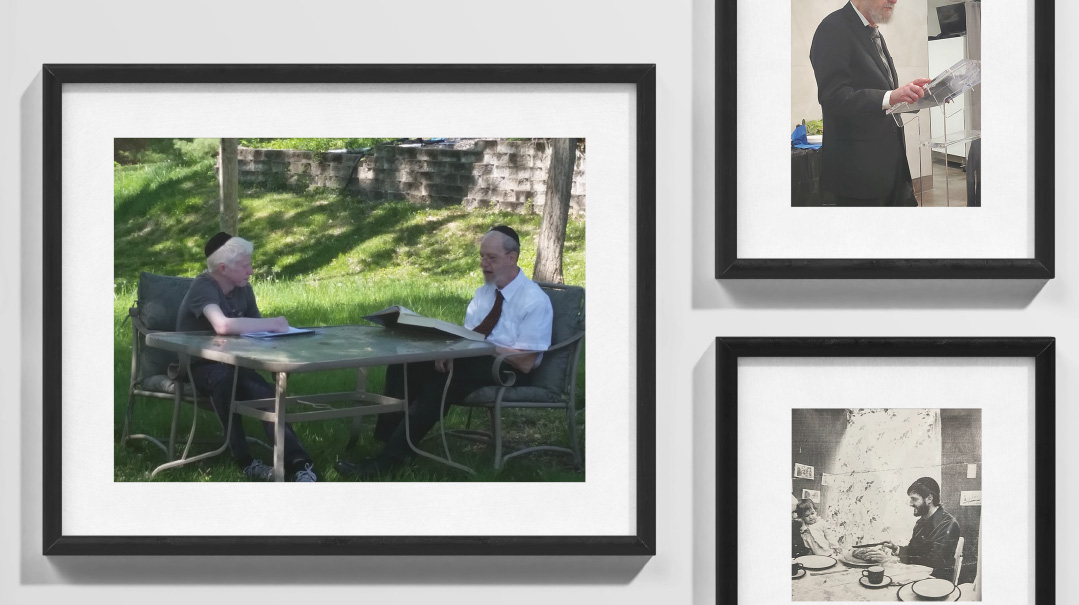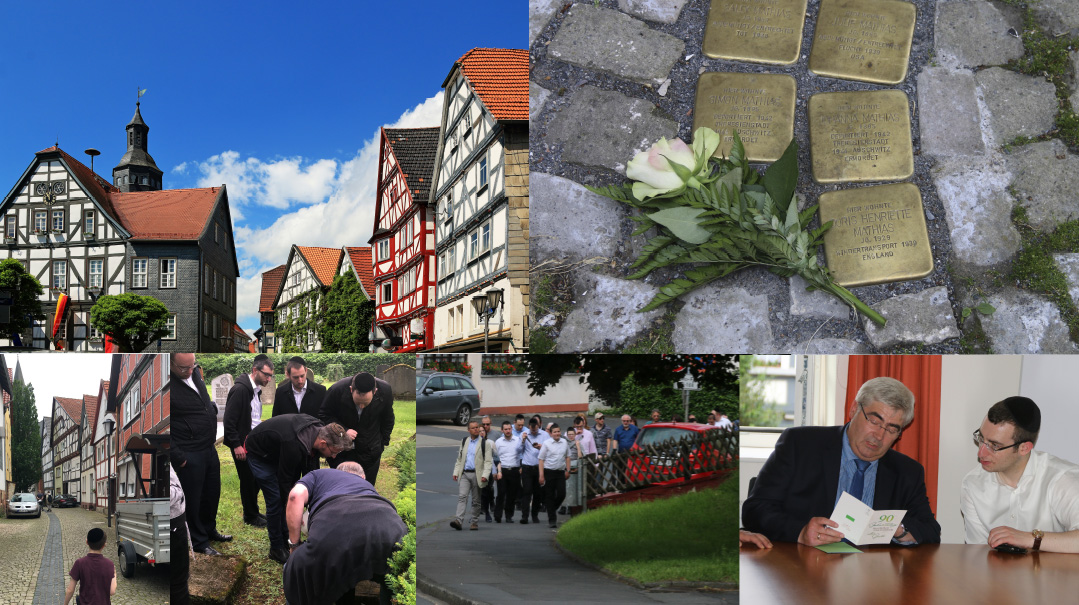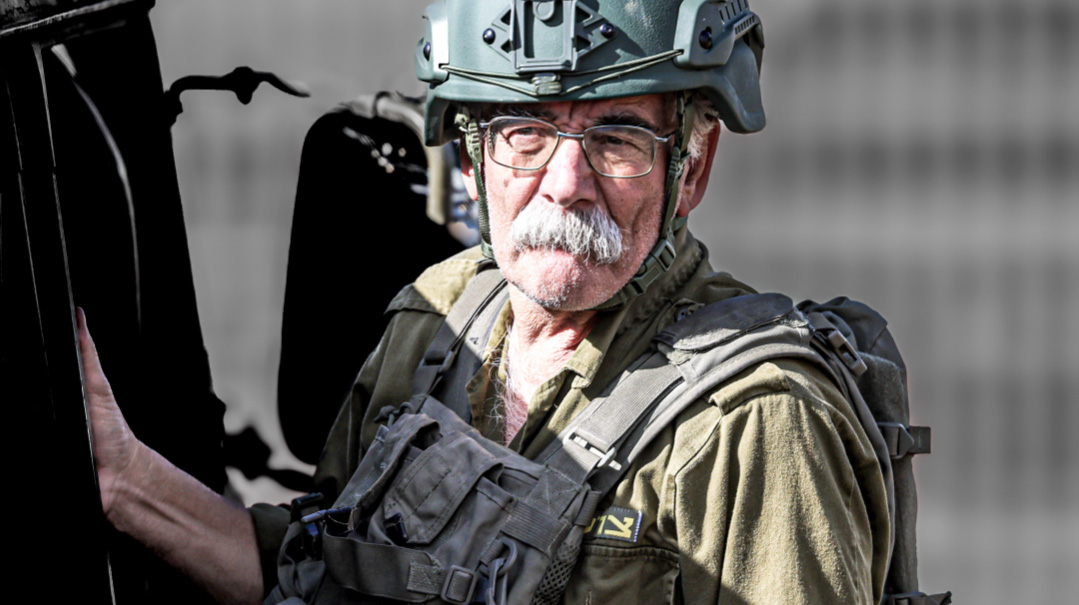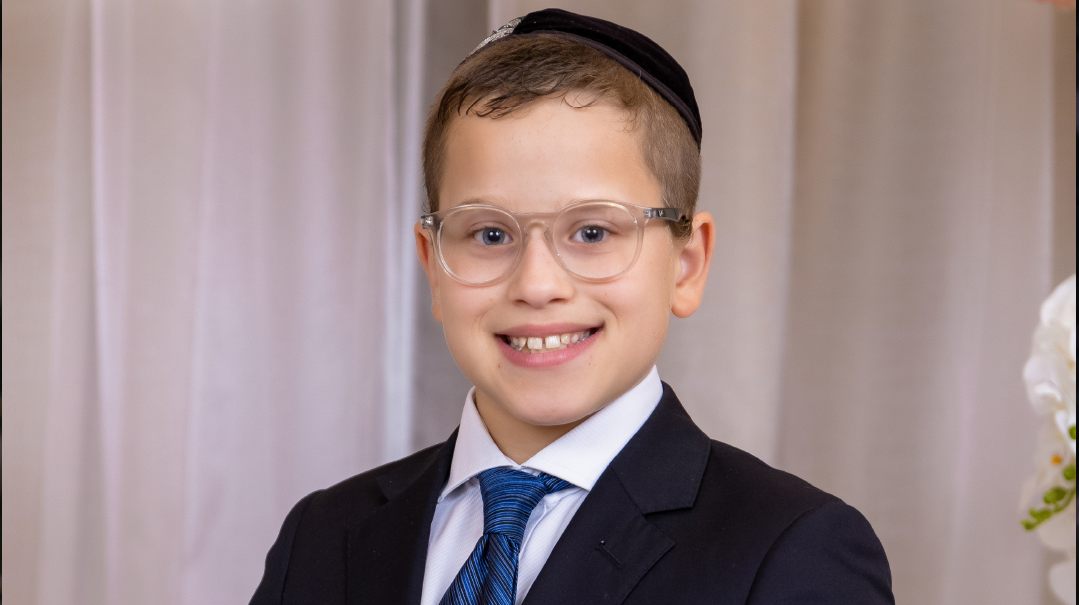What Am I Doing in Murfreesboro?
| April 18, 2023A cascade of events frees a Jewish woman in the Bible Belt

Part I
Last May, my friend Yisrael (name changed) called. He lives in Brooklyn, New York, and the two of us overlapped during our years in Yeshiva Chofetz Chaim in Queens. After we briefly caught up, Yisrael explained the reason for his call.
He had started studying with a beginner to Torah learning, a total stranger who was interested in exploring his heritage, and his new study partner had shared that he had gotten divorced some ten years earlier. With gentle prodding, Yisrael ascertained that his chavrusa had been married to a Jewish woman in a fully halachic ceremony officiated by an Orthodox Rabbi. When Yisrael asked if they had arranged for a get, his study partner replied in the negative; obtaining a Jewish divorce had just not on been on their radar. However, Yisrael’s chavrusa was open to taking care of it now, a decade later.
“Fascinating,” I said. “But how can I help? I live in Memphis, Tennessee, not New York — and Brooklyn has no shortage of rabbis who can assist you.”
“My chavrusa’s ex-wife now lives somewhere in Tennessee,” Yisrael explained.
“Hmm,” I said. “Tennessee is a large state, and Memphis is located in its furthest southwest corner. Do you know where your chavrusa’s ex-wife lives? Without knowing which city she’s in, it’ll be impossible to assist.”
Yisrael then asked me if I knew of a rabbi who specialized in gittin who could help him proceed. With great sadness, I told him that our community was still mourning the loss of Rav Nota Greenblatt ztz”l, who had passed away just a few weeks earlier. (His first yahrzeit is on 28 Nissan.)
Rav Nota had devoted his life to the service of Klal Yisrael and was renowned for literally traveling the width and breadth of the United States writing gittin and administering Jewish divorces.
“If only Rav Nota were still with us, he certainly would have been able to bring this case to a quick resolution,” I remarked.
Nevertheless, I suggested that we reach out to Rabbi Chaim Jachter of Teaneck, New Jersey — a formidable talmid chacham, who is a popular high school rebbi at the Torah Academy of Bergen County; the rabbi of Shaarei Orah, The Sephardic Congregation of Teaneck; and most significantly, a dayan in the nearby Elizabeth beis din who is extensively involved in gittin.
We reached out to him, and he said the first thing we needed to do was establish contact with the chavrusa’s ex-wife and ascertain just where in Tennessee she lived. Yisrael said he would work on that.
Part II
Aside from serving as the rabbi of the Young Israel of Memphis, I’m also privileged to teach Torah at the local Cooper Yeshiva High School for Boys. CYHSB’s annual shabbaton/winter trip features prominently on its calendar, and our menahel Rabbi Yonasan Gersten puts a lot of thought into the trip.
Since we relocated to Memphis in 2016, I’ve greatly enjoyed joining the students for this annual highlight. We spend an uplifting Shabbos in a venue east of Memphis, and then we travel another five hours or so northeast to Gatlinburg, where the students spend a day skiing in the Great Smoky Mountains.
This year, however, winter was unusually warm. When Rabbi Gersten touched base with the ski resort at the end of January to confirm the upcoming trip, they told him the slopes would no longer be open for skiing at the end of February. Undeterred, Rabbi Gersten got to work crafting a new schedule of activities for the boys to enjoy in Gatlinburg. However, the students pointed out that traveling five hours to Gatlinburg wasn’t necessary if there was no skiing. Surely, they argued, enjoyable activities could be found closer to where they’d be spending Shabbos. Rabbi Gersten agreed and went back to the drawing board, creating an alternate itinerary for the post-Shabbos segment: We would drive about an hour to a hotel in Murfreesboro, Tennessee, on Sunday morning, where we would base ourselves until Tuesday, enjoying local activities. This revised plan was a hit with the boys, and students and staff alike were looking forward to the trip.
Part III
Not long before the shabbaton, I received another call from my friend Yisrael in Brooklyn, whom I hadn’t heard from since our last conversation almost ten months earlier. He told me that for reasons he couldn’t fully explain, he and his chavrusa had ceased learning together shortly after we’d last been in touch. Only recently had their schedules become more manageable, and now the two of them had resumed.
Just the other week, Yisrael had raised the matter of the get once again, and his chavrusa reiterated his willingness to proceed. I gladly resent him Rabbi Jachter’s phone number.
“Please keep me posted,” I said.
It was Rabbi Jachter who reached out to me next. He told me he was pursuing some leads Yisrael’s chavrusa had provided to locate his ex-wife in Tennessee, and he assured me he would be in touch once he had more information.
A day or two later, I missed Rabbi Jachter’s call while I was teaching. When class ended, I stepped out to the playground to listen to his voicemail, taking care to avoid getting in the way of a heated elementary school kickball game.
I was amazed to hear he had established contact with the divorcee, Rachel (name changed), and I quickly called him back.
“I found her!” he said, “And she agreed to receive the get!”
I was thrilled to hear this, and we began to discuss the technicalities.
Rabbi Jachter explained that he could meet Yisrael’s chavrusa in Brooklyn to write the get, and then have me appointed as the shaliach to deliver it to Rachel in Tennessee.
I wasn’t sure how easily I would find two kosher eidim to accompany me, which would be necessary to halachically validate and witness the delivery of the get. After all, according to Rabbi Jachter’s calculations, Rachel was living a bit more than a four-hour drive east of Memphis.
Still, I assured Rabbi Jachter that while this might be challenging, I would do my best to make it happen.
“Where does Rachel live?” I asked.
“Have you ever heard of a place called Murfreesboro?” Rabbi Jachter responded — and I nearly dropped my cell phone.
If the kids playing kickball had noticed me, they would have thought I’d lost my mind. I was pacing back and forth shouting excitedly into the speaker.
“Rabbi Jachter, in two weeks our entire high school will be in Murfreesboro for two full days! And the rebbeim will be there too! We’ll have no problem procuring kosher witnesses; we can meet Rachel and deliver her get!”
Rabbi Jachter was thrilled to hear this, but he remained more grounded than I was, reminding me there were still several moving parts that needed to fall into place.
We each got to work. By Friday afternoon two weeks later, as I parked my car in front of a Tennessee State Park cabin, the following plan had materialized:
Rabbi Jachter and a sofer were scheduled to meet Yisrael’s chavrusa in Brooklyn that Sunday morning to write the get. They would also write up a document appointing me as the shaliach to deliver the get to Rachel.
Later that day, Rabbi Jachter’s wife would take the get and accompanying document to a UPS store. The package would ship out Monday, arriving first thing Tuesday morning to the Murfreesboro hotel where we’d be staying.
Rachel, accompanied by her married daughter and grandson, would meet me at the hotel’s boardroom at 10:00 a.m. on Tuesday morning. I would follow Rabbi Jachter’s detailed instructions and deliver the get to Rachel in the presence of two fellow rebbeim, who would serve as the designated witnesses.
I went into Shabbos with my head spinning, but I reassured myself that if so many pieces of the puzzle had already come together, Hashem would ensure the other parts would fall into place as well. I davened that each step would proceed precisely as planned.
Part IV
Sunday afternoon I reached out to Rabbi Jachter.
“My wife shipped the package out,” he reported, and I breathed a sigh of relief. “I’ll send you the tracking number.”
The get was officially on its way to Murfreesboro.
On Monday, the high school visited an aquarium and explored a marvelous cave system. Reception was spotty, but whenever I could, I tracked the UPS package. Later that night, I spent a lot of time back at the hotel reviewing the precise halachic instructions Rabbi Jachter had shared about delivering a get.
I also noticed a weather bulletin informing me that much of the greater New York/New Jersey area had been blanketed that evening by an intense snowstorm. I drifted off to sleep hoping the get had made it out of New Jersey ahead of the blizzard.
Tuesday morning, I immediately checked the package’s progress. I was relieved to see it was scheduled to arrive at 7:30 a.m. I quickly made my way to the front desk — where the friendly clerk handed me a large UPS envelope that had been delivered just a few minutes earlier. I hurried to davening feeling a profound sense of awe and excitement.
The previous day, I had asked Rachel if my students could observe the short ceremony, and she had readily agreed. After Shacharis, I gave the boys a brief rundown of the incredible chain of events, after which I invited any interested students to meet us in the boardroom by 10:00 a.m.
Thank G-d, everything proceeded smoothly. Rachel, her daughter, and her grandson arrived at the hotel as scheduled. Around ten to fifteen students were there to observe the carefully scripted proceedings with fascination.
To compound the Hashgachah pratis so present in this story, G-d blessed us with one last reminder of His involvement. Due to the blizzard the night before, the high school where Rabbi Jachter teaches was canceled that Tuesday, freeing him to “join” us via WhatsApp video. When a significant halachic issue arose during the proceedings, he was available to help us overcome the unexpected hurdle.
After Rachel accepted the get, we acknowledged that she was now fully divorced according to halachah.
We wished her all the best moving forward and thanked her for allowing us to be part of this important mitzvah. Rachel expressed her sincere appreciation. Once she and her family left, the students told us how impacted they were by this experience.
Part V
The next Shabbos was parshas Zachor, and I had quite a story to share with my shul. Like Mordechai and Esther in the Megillah, Yisrael, Rabbi Jachter, Rabbi Gersten, the high school, and I had merited partnering together with Hashem to help bring one of His plans to fruition.
Had I been asked a few weeks prior why we were in Murfreesboro, what would I have answered? Surely something about how this year’s winter was warmer than usual, the ski slopes in Gatlinburg closed ahead of schedule, Rabbi Gersten revised our trip plans, and therefore, we needed to stay in Murfreesboro. In hindsight, however, it’s clear that’s not the real reason why we had to be there.
At the beginning of Shacharis each morning, we recite the brachah of Hameichin mitz’adei gaver. We acknowledge that it is Hashem Who prepares the footsteps of man. This blessing is based on the following two pesukim: One from Tehillim (37:23), “A man’s footsteps are established by G-d, and He shall favor his way,” and the second from Mishlei (20:24), “A man’s steps are from G-d, but what does a man understand of His way?”
To paraphrase the Metzudas David in Mishlei, a person may think he understands why he travels to his intended destination, but in truth, man has no clue why he arrives where he does. It is Hashem Who plans our journeys; He knows the true reasons for why we end up where we do.
I may have thought we were headed to Murfreesboro because of weather-related and logistical reasons. What became abundantly clear, however, was that Hashem wanted us to be in Murfreesboro to ensure that a fine Jewish woman received her get. Only He could have orchestrated the series of events which brought the many parts of this saga together.
This episode has given me much to think about when plans don’t go as I would like. Recently, my wife and I missed a connecting flight and were forced to spend a night in Charlotte, North Carolina. While ostensibly, weather patterns caused the delay, I know something much deeper could have been taking place. Was it Hashem’s Will that another Jew (or two) in North Carolina needed to see us wash netilas yadayim and recite brachos before and after eating our sandwiches? Did a curious Jewish brother or sister need to see me put on my tallis and tefillin or watch us daven Shacharis in the airport? I have no idea. However, I do think about the pasuk from Mishlei more often.
When I find myself in unexpected — and sometimes undesired — situations, instead of feeling frustrated, I try to ask myself, “What am I doing in Murfreesboro?”
Hashem was kind enough to let me understand the depth of His plans once. Maybe, just maybe, He’ll let me understand His ways yet again.
Rabbi Akiva Males serves as the rabbi of Young Israel of Memphis. He also teaches Torah at the Cooper Yeshiva High School for Boys.
(Originally featured in Mishpacha, Issue 957)
Oops! We could not locate your form.







